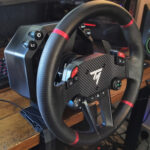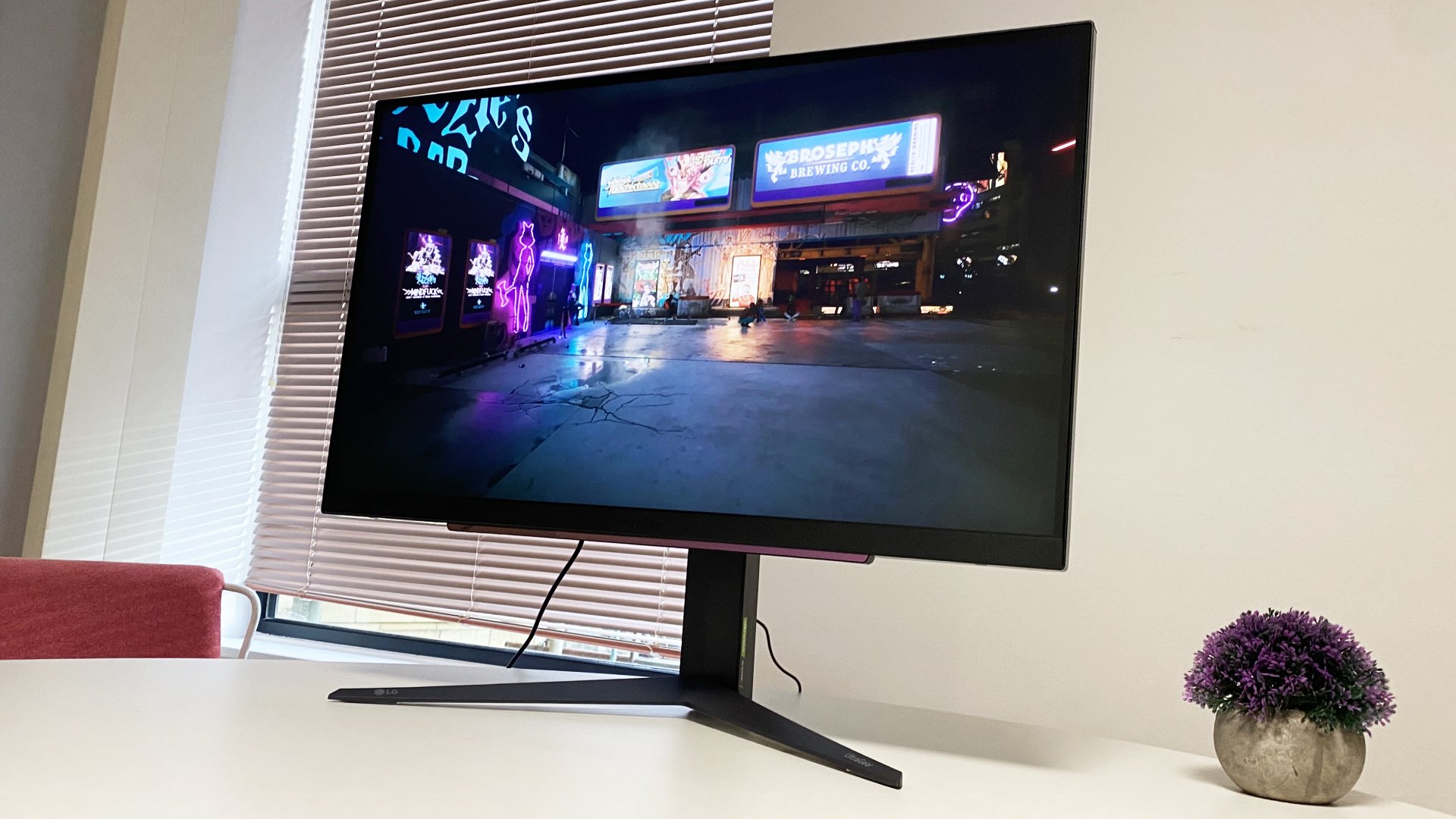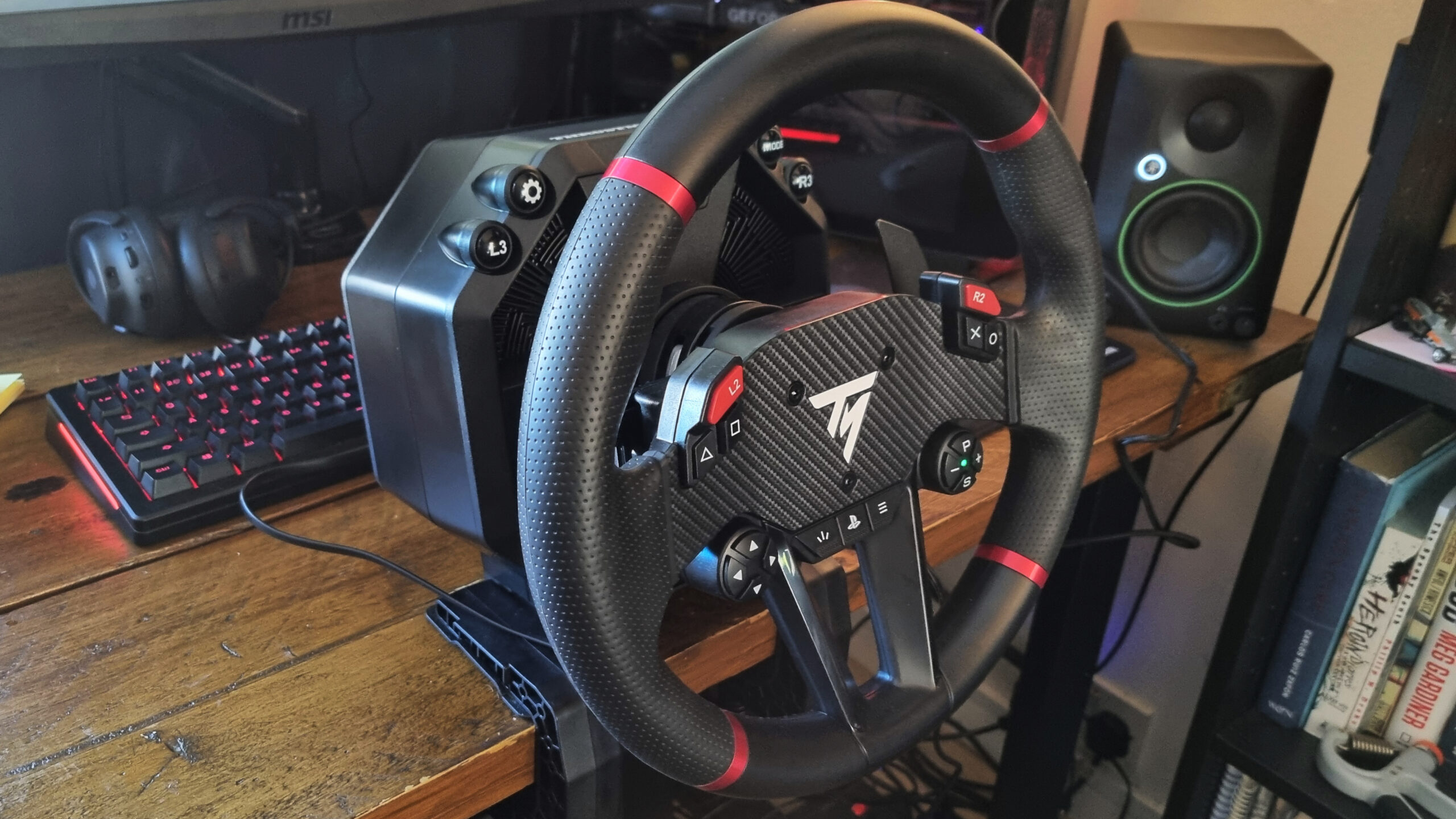Let’s begin with the sordid matter of money. The cheapest you can currently acquire the new LG UltraGear 27GR93U for is $630. Youch. That’s quite a lot for a 27-inch gaming monitor, even if this new LG is the full 4K and knocks out 144Hz.
It’s notable that the 32-inch version of this panel, the LG UltraGear 32GR93U, goes for about $750. So, more money, but if you’re spending $630, there’s a decent chance that you can afford $750. And if it’s not stretching that line of thinking to breaking point, at $800 you can grab a 27-inch 1440p OLED gaming panel.
Heck, we’ve seen the cheaper version of Alienware’s 34-inch ultrawide OLED go for $800 on occasion. And, of course, there are 28-inch 4K gaming panels with 144Hz refresh available from proper brands for as little as $400. OK, those monitors use an Innolux IPS panel that isn’t as good as LG’s IPS panel. But then they’re an awful lot cheaper.
Anyway, the overarching point here is that the LG UltraGear 27GR93U’s price tag puts you in a part of the monitor market that gives you an awful lot of options. It needs to be darn good.
(Image credit: Future)
Screen size: 27-inch
Resolution: 3840 x 2160
Brightness: 400 nits
Color coverage: 95% DCI-P3
Response time: 1ms
Refresh rate: 144Hz
Contrast ratio: 1000:1
Features: IPS panel, adaptive sync, 1x DisplayPort 1.4, 2x HDMI 2.1
Price: $630 | £550
Initial impressions aren’t actually that promising. Apart from the fact that the spec list is pretty modest in some regards, most obviously in terms of very limited HDR support, the 27GR93U feels pretty cheap and insubstantial as you pull it out of the box and piece it together.
The stand adjusts for height, tilt and pivot into portrait mode (there’s no swivel), and is perfectly stable. It’s just the main chassis plastics are pretty cheap and scratchy. For sure, we’d rather the money went into the panel and electronics.
Even so, physically this doesn’t feel like $600-plus of prime gaming hardware. Even the RGB lighting on the rear is a bit half hearted and apologetic. But don’t panic. The good stuff happens when you actually fire the 27GR93U up.
(Image credit: LG)
Don’t panic. Good stuff happens when you actually fire the 27GR93U up.
This is a really lovely monitor, really, really lovely. On paper, it’s just another IPS panel with pedestrian numbers like 1,000:1 contrast and HDR400 certification, and thus no local dimming and very limited, if any, true HDR capabilities.
OK, the 1ms response is pretty much cutting edge for an LCD monitor and the 95% coverage of the DCI-P3 gamut is decent, though hardly spectacular. But on paper, the LG UltraGear 27GR93U isn’t much of a head turner. Heck, it doesn’t even have USB-C, which admittedly isn’t a major omission for a gaming monitor. It does have two proper HMDI 2.1 48Gbps ports, plus DisplayPort, however.
Anyway, if there’s such a thing as a pretty basic 144Hz 4K gaming monitor by the numbers this is it. And yet it’s actually pretty stellar. For starters, it’s beautifully calibrated. The colours are bang on out of the box, accurate and rich with plenty of pop but without being oversaturated or cartoonish.
The LG UltraGear 27GR93U’s anti-glare coating is somewhere in between matte and glossy. (Image credit: Future)
Like any 27-inch 4K panel, the LG UltraGear 27GR93U is razor sharp with fantastic pixel density
Of course, like any 27-inch 4K panel, it’s razor sharp with fantastic pixel density. On balance, 32-inch 4K probably makes more sense in terms of striking a balance between overall size and sharpness. Go beyond 32 inches and the pixel density and crispness begins to fall off noticeably. But if you want crazy crispness, well, you won’t be disappointed.
Nor will you be disappointed by the pace. Well, not unless you’re a total esports freak used to a 360Hz panel running Counter Strike at 1080p. 144Hz is enough for most of us in terms of latency and smoothness and the LG’s pixel response is also excellent.
You get three levels of response-accelerating overdrive in the OSD menu, plus the option to totally disable it. The fastest setting does introduce some pretty obvious overshoot and inverse ghosting. But it’s also hella fast. In the pale colors of Counter Strike 2’s Dust maps, it actually works surprisingly well. There’s real clarity, even when ripping that mouse around viciously.
(Image credit: Future)
(Image credit: LG)
(Image credit: LG)
(Image credit: Future)
(Image credit: Future)
(Image credit: LG)
Subjectively, it’s not far off the response experience of OLED, even if the cold hard numbers say otherwise. Again, on paper, OLED is miles faster. Anyway, the middle overdrive setting is probably the best compromise. There’s still the very slightest whiff of overshoot. But it’s totally usable and still very, very quick for an IPS panel.
Speaking of very usable things, that actually applies to HDR content. Primarily that’s because SDR content still looks great in HDR mode, which so often isn’t the case on low-end HDR monitors. Which means you can just toggle HDR and you’re done.
HDR content like, say, Cyberpunk 2077 with all the bells and whistles looks good in SDR terms rather than being terribly, er, HDR-y. But since SDR content doesn’t suffer, you may as well just leave Windows in HDR mode and save you having to toggle it for specific games.


And while we’re roughly on the subject of all things HDR and contrast related, a word about the LG UltraGear 27GR93U’s anti-glare coating. It’s not actually glossy. But it’s a little smoother and clearer than your average matte coating.
It’s sort of a half-way house between glossy and matte and, basically, we like. It definitely ups the subjective sense of contrast over regular flat matte coatings and also improves overall clarity.
Anyway, this is a darn fine monitor overall. For sure, it feels expensive and it would be easier to really love it at, say, $500. And, ultimately, at this kind of price point a 32-inch 4K panel probably makes more sense. But if you prefer the 27-inch form factor, you appreciate the eye-popping pixel density and you’re not bothered about having local dimming and something that comes closer to true HDR support, well, stick this new LG near the top of your shortlist. It’s really, really nice.










